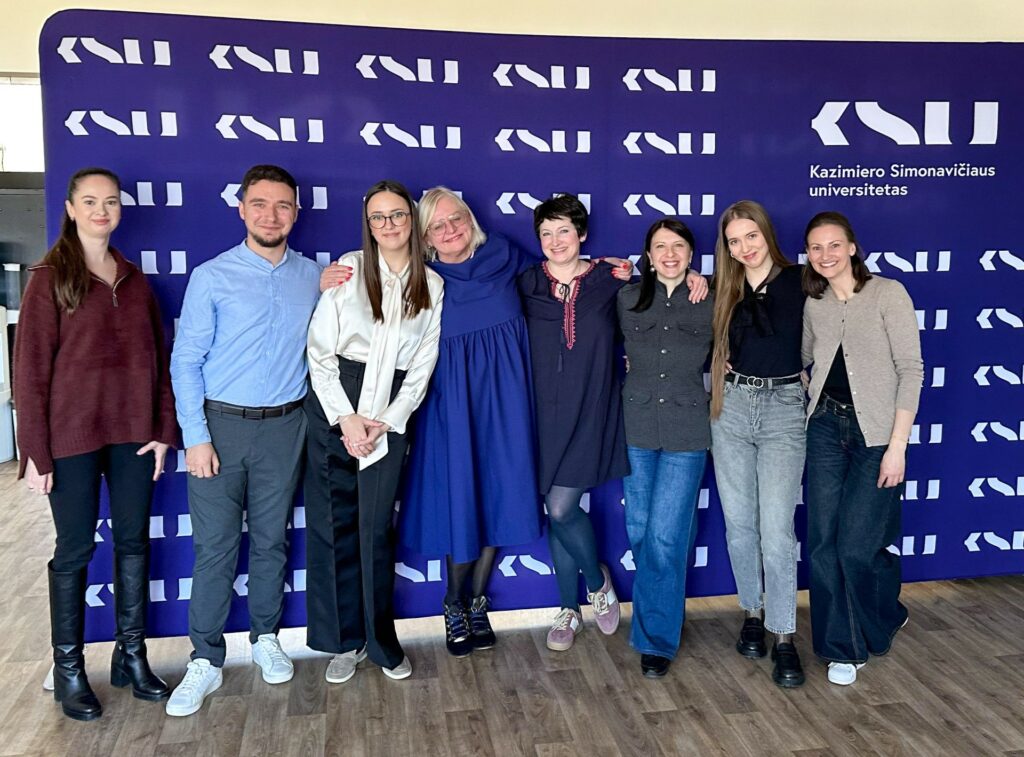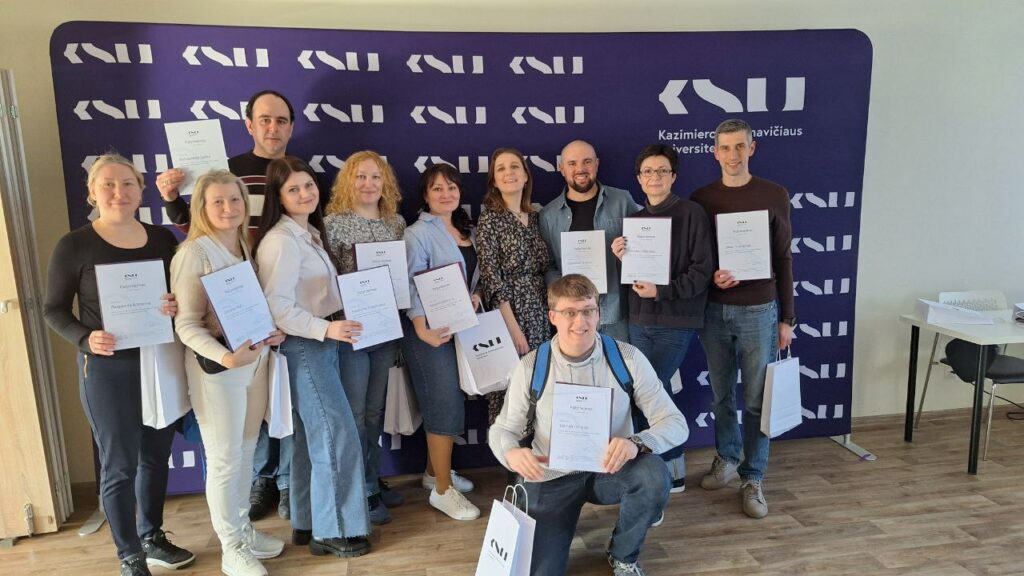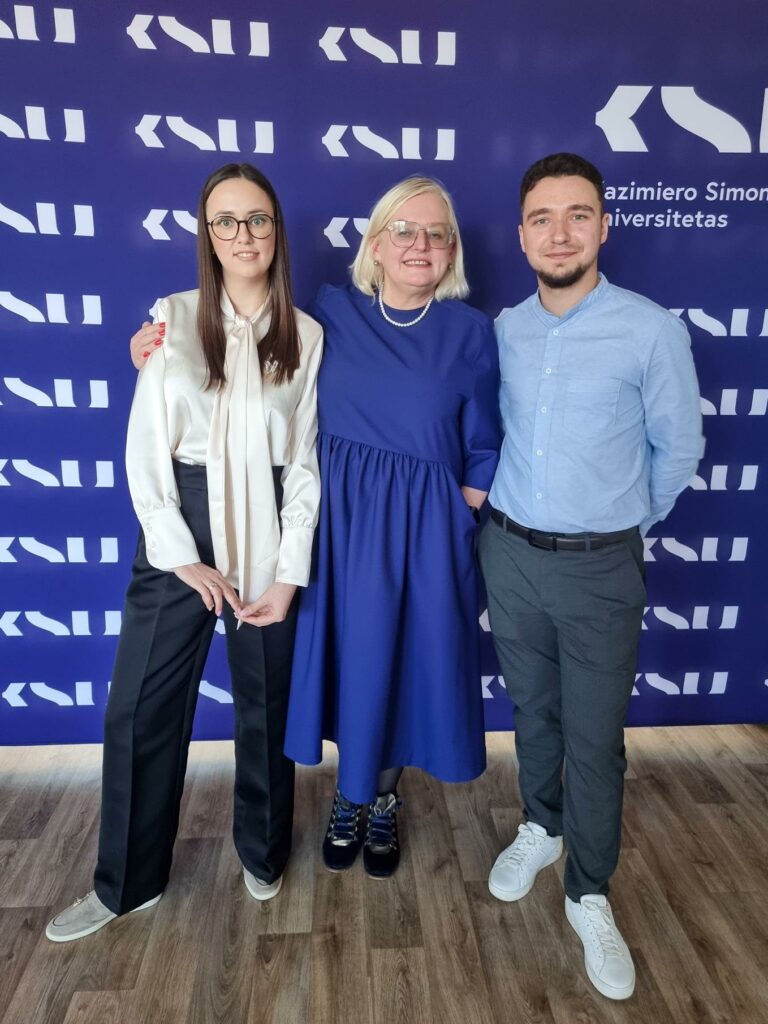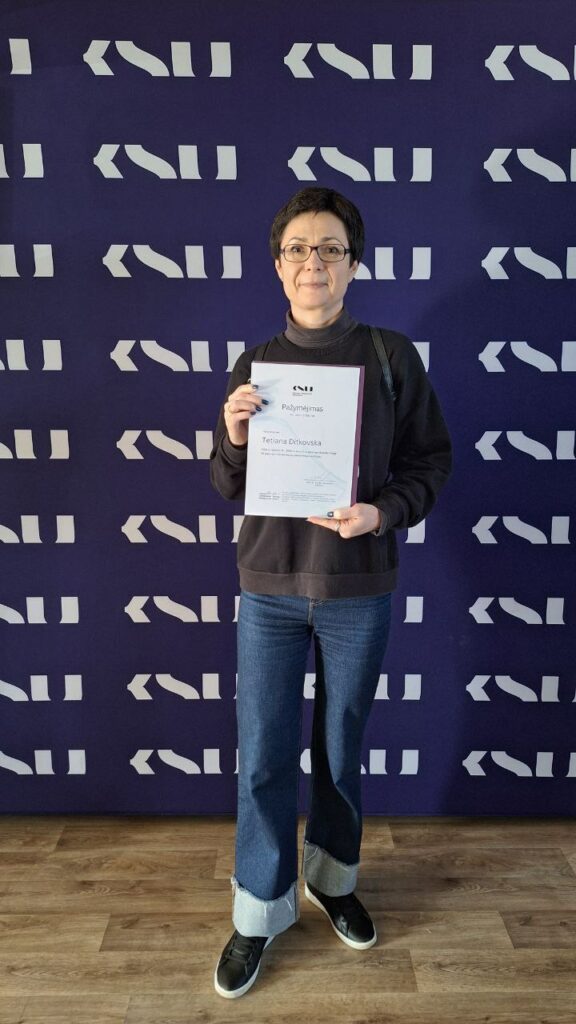At Kazimieras Simonavičius University (KSU), a five-month Lithuanian language course for Ukrainian refugees recently came to an emotional close, highlighting the power of language in rebuilding lives and connecting communities.
Between 24–27 March, lecturers at KSU led the final sessions of a Lithuanian course specially designed for Ukrainians who fled the war in their homeland. Over 100 participants took part in the programme, funded by the European Economic Area and Norway Grants (2014–2021) through the Bilateral Cooperation Fund.
A Journey of Language and Hope
“From the moment I arrived in Lithuania, I’ve been doing my best to learn the language,” says Sergii, one of the course participants who completed the B2 level.
For Jurgita Valatkevičiūtė, the project’s coordinator, the initiative was more than just a set of classes:
“Our university team feels proud of what we’ve accomplished. These courses gave people more than language – they offered belonging, confidence, and a stronger connection to Lithuania.”
One Goal, Many Backgrounds
The participants came from all walks of life: doctors, teachers, designers, engineers, students, baristas, and retirees. What brought them together was a shared determination to integrate, despite being uprooted by war.
“They all had a common goal – to speak with Lithuanian people,” says Jurgita.
Teaching That Makes a Difference
The course was led by an experienced team of four lecturers:
What made the course unique was the cognitive teaching method developed by Prof. Zabarskaitė. Rather than focusing on grammar from the start, the course encouraged speaking, vocabulary building, and learning through real-life situations.
“Mistakes are a natural part of learning. Grammar only comes later,” explains Prof. Zabarskaitė.
“The key is to speak and not be afraid. Over 60% of participants began speaking Lithuanian during the course – not just answering questions, but having real conversations.”
Motivation That Moves Mountains
A big part of the course’s success came from the students’ own motivation.
“Ukrainians really want to learn. For them, it’s not just a skill – it’s a necessity,” says Zabarskaitė.
“That motivation makes all the difference.”
But she also believes Lithuanians play a crucial role in supporting learners:
“We often switch to English or Russian, thinking we’re helping. But we’re actually making it harder. We should be patient and help Ukrainians practise Lithuanian – they truly appreciate the effort.”
Real People, Real Progress
Sergii (25) – Engineer from Kharkiv
Sergii came to Lithuania three years ago with his wife Ana. Now working as an engineer at a Lithuanian company, he’s completed four different Lithuanian language courses.
“This one was especially helpful – we focused on speaking. Jolanta’s method really helped expand my vocabulary,” he says.
“I plan to take the state language exam. It just feels natural – I don’t understand how someone could live here for 5 or 10 years and not learn the language.”
Eva (21) – Barista from Kyiv
Eva works in a café at the CUP shopping centre. After completing the A1 level, she already feels confident speaking with customers.
“Our teacher, Tatjana, was incredibly warm and supportive. I never felt stressed in her class – it made learning easy,” she says.
“As long as I live in Lithuania, I’ll keep learning.”
 Tetiana (45) – Producer from Ukraine
Tetiana (45) – Producer from Ukraine
Tetiana, a well-known producer back home, had a discouraging start with Lithuanian before joining KSU.
“My first course elsewhere focused only on grammar. I ended up afraid to speak. But at KSU, we learned through songs, texts, and constant conversation. The language finally started to feel approachable,” she recalls.
“And our group became real friends – we’re still in touch.”
A Project That Builds Bridges
Looking back on the experience, project lead Jurgita Valatkevičiūtė says:
“There were plenty of challenges and emotional moments. Often, we had to act not just by the rules, but with empathy. But it was worth it.
We believe language skills will help Ukrainians not just survive here – but truly thrive.”
About the Project
Project Title: Lithuanian Language Training for Ukrainian Refugees Fleeing the War of Russian Aggression
Organiser: Kazimieras Simonavičius University (KSU)
Funding: European Economic Area and Norway Grants (2014–2021), Bilateral Cooperation Fund
Share: